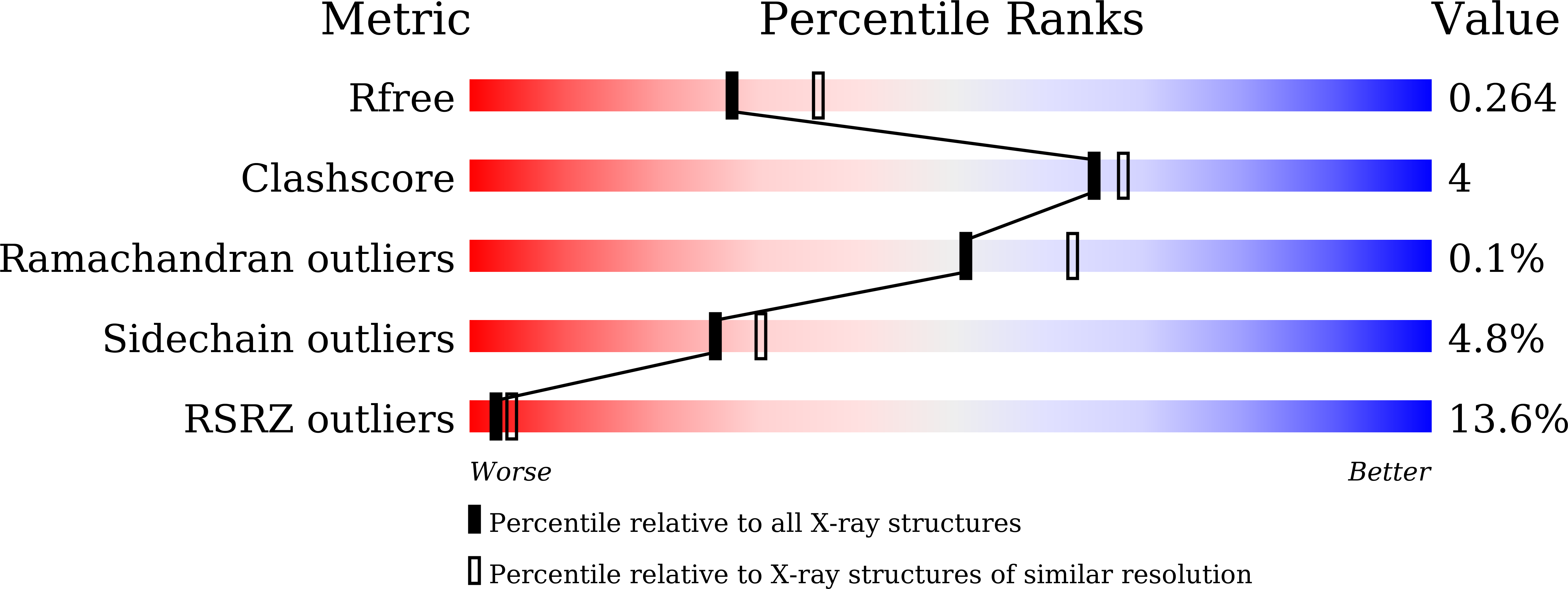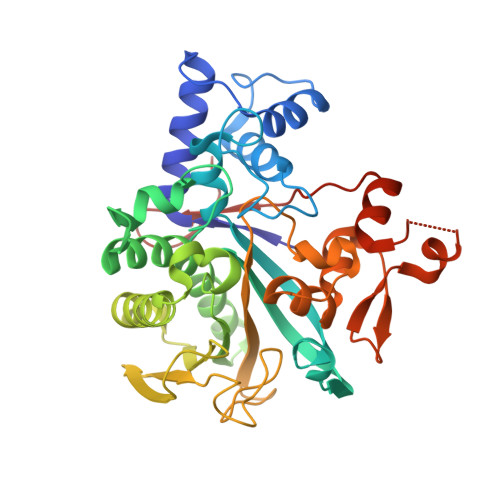Legionella maintains host cell ubiquitin homeostasis by effectors with unique catalytic mechanisms.
Fu, J., Li, S., Guan, H., Li, C., Zhao, Y.B., Chen, T.T., Xian, W., Zhang, Z., Liu, Y., Guan, Q., Wang, J., Lu, Q., Kang, L., Zheng, S.R., Li, J., Cao, S., Das, C., Liu, X., Song, L., Ouyang, S., Luo, Z.Q.(2024) Nat Commun 15: 5953-5953
- PubMed: 39009586
- DOI: https://doi.org/10.1038/s41467-024-50311-2
- Primary Citation of Related Structures:
8IPJ, 8IPW, 8J9B - PubMed Abstract:
The intracellular bacterial pathogen Legionella pneumophila modulates host cell functions by secreting multiple effectors with diverse biochemical activities. In particular, effectors of the SidE family interfere with host protein ubiquitination in a process that involves production of phosphoribosyl ubiquitin (PR-Ub). Here, we show that effector LnaB converts PR-Ub into ADP-ribosylated ubiquitin, which is further processed to ADP-ribose and functional ubiquitin by the (ADP-ribosyl)hydrolase MavL, thus maintaining ubiquitin homeostasis in infected cells. Upon being activated by actin, LnaB also undergoes self-AMPylation on tyrosine residues. The activity of LnaB requires a motif consisting of Ser, His and Glu (SHxxxE) present in a large family of toxins from diverse bacterial pathogens. Thus, our study sheds light on the mechanisms by which a pathogen maintains ubiquitin homeostasis and identifies a family of enzymes capable of protein AMPylation.
Organizational Affiliation:
Department of Respiratory Medicine, Center for Infectious Diseases and Pathogen Biology, Key Laboratory of Organ Regeneration and Transplantation of the Ministry of Education, State Key Laboratory for Diagnosis and Treatment of Severe Zoonotic Infectious Diseases, The First Hospital of Jilin University, Changchun, China.

















